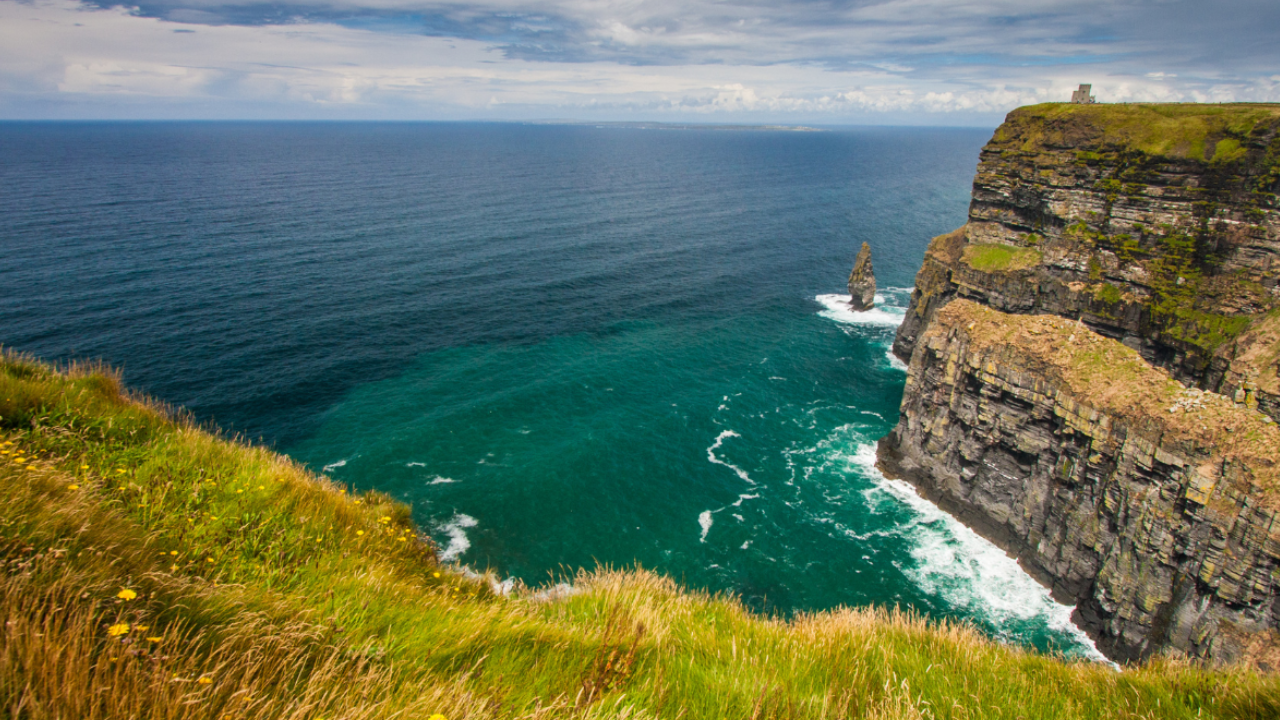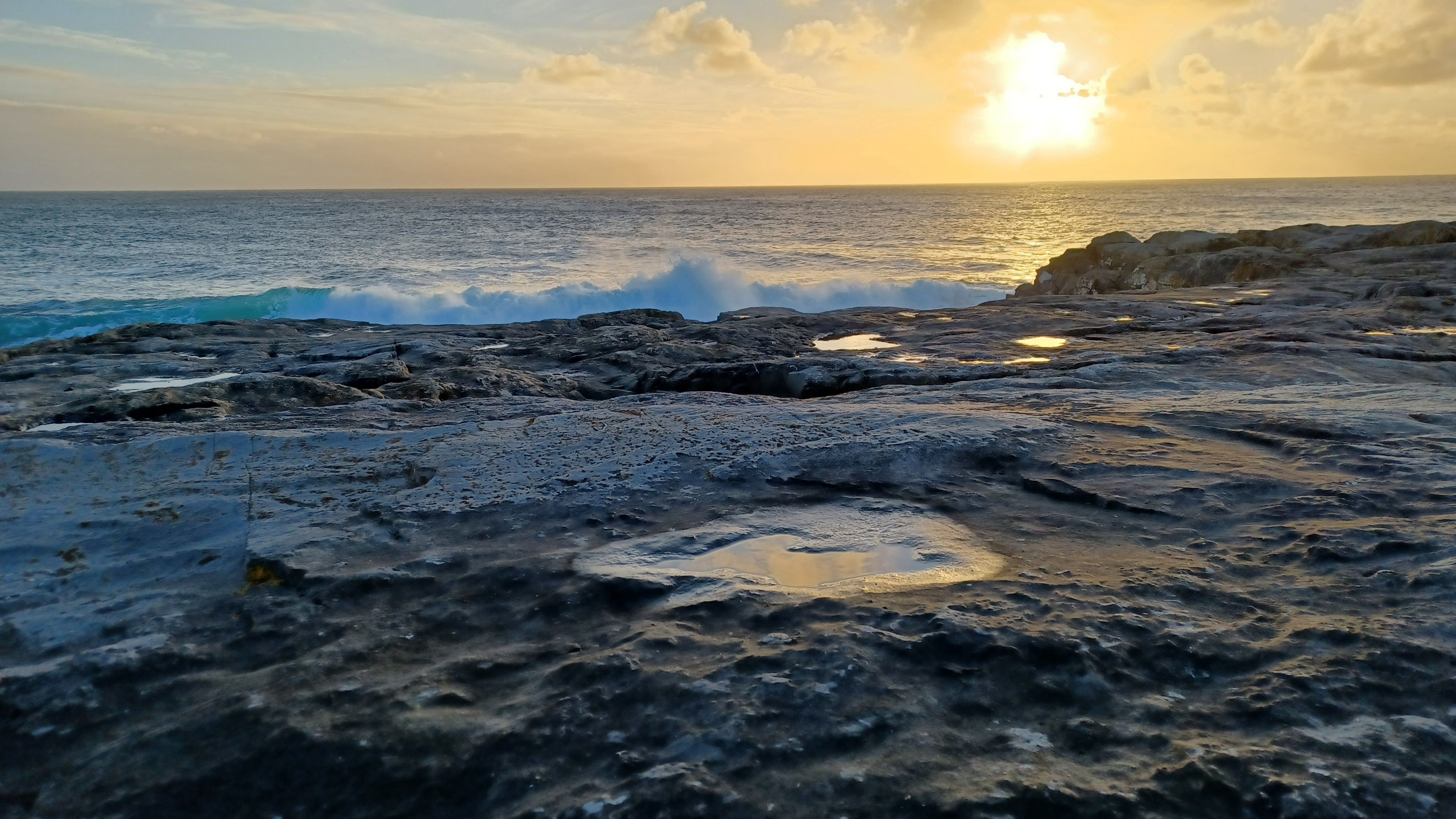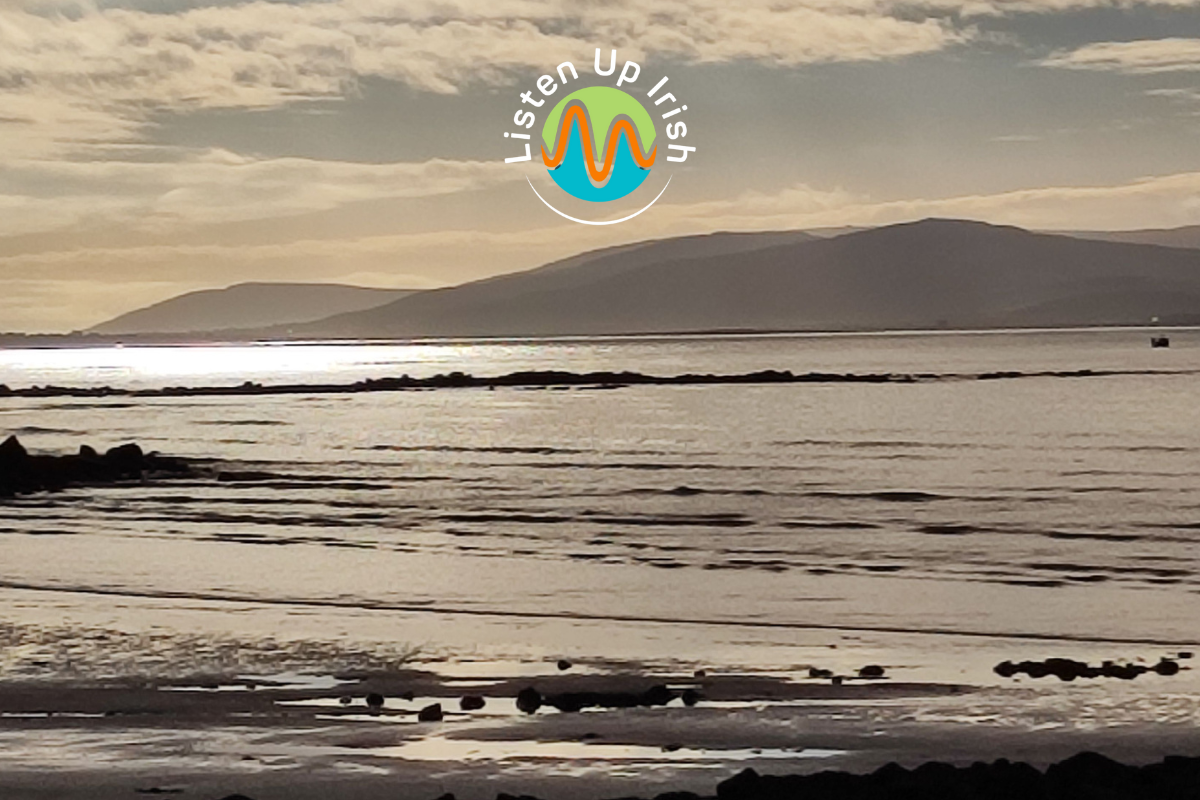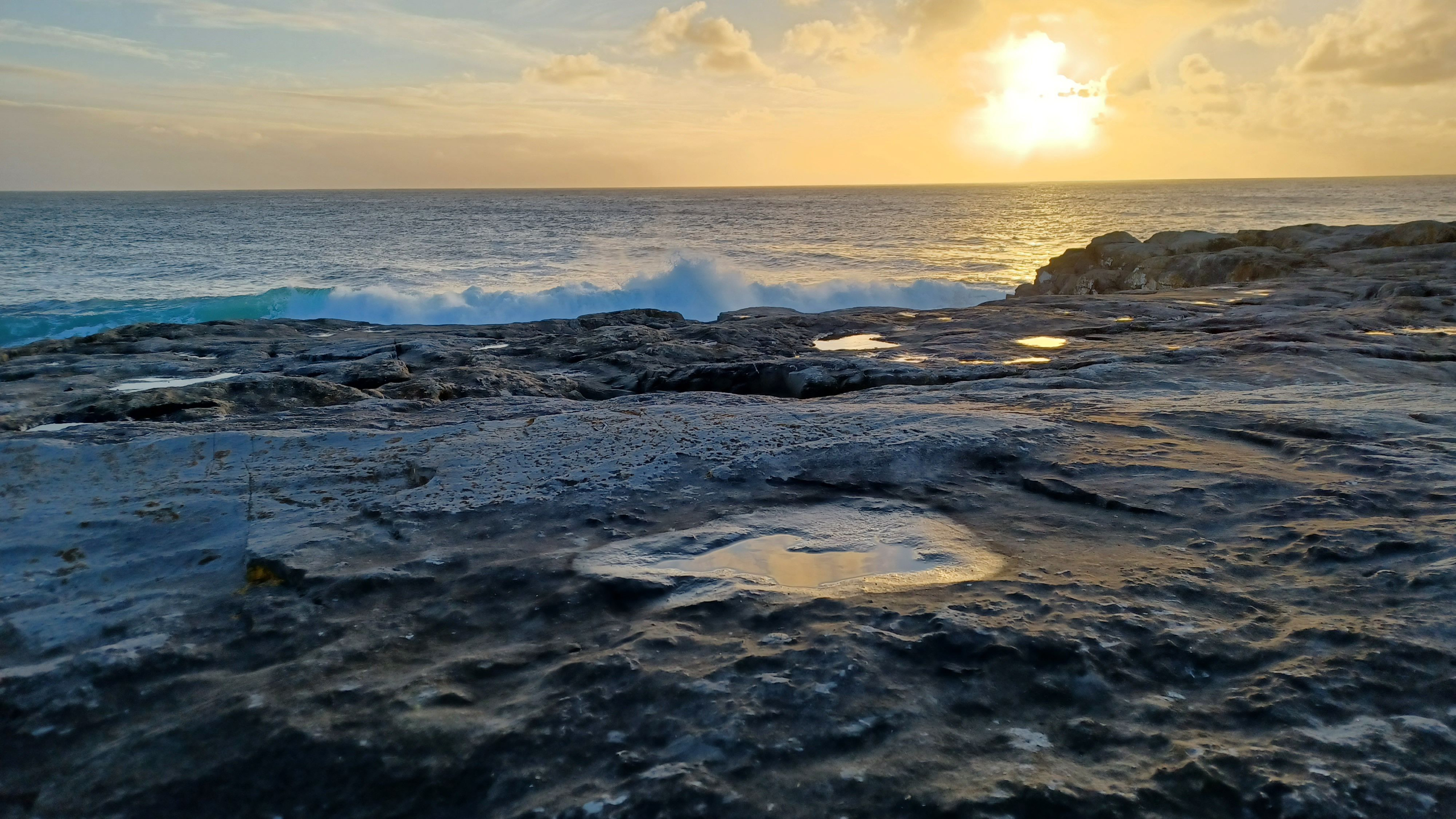Na Blátha Craige / The Rock flowers
A poet goes for a walk and sees some flowers. What does he do?
Well, write a poem of course!
While out walking William Wordsworth spies a 'host of golden daffodils, beside the lake, beneath the trees, fluttering and dancing in the breeze.' And so, he puts pen to paper, and in 1807 one of the best known poems in the English language is published...'and then my heart with pleasure sings, and dances with the daffodils.'
Sometime in the early 20th century the Aran Islands poet and author, Liam Ó Flaithearta, also sees some flowers while out walking. Not golden daffodils however. He spots a clump of rock flowers clinging tenaciously to the cliff edge. They are drenched by the spray of the sea on the dark side of the cliff, where the sun rarely shines. But these rock flowers are every bit as entrancing as Wordsworth's daffodils. Although it would appear that their conditions are miserable the rock flowers tell Ó Flaithearta that they are content, because they are 'faoi dhraíocht ag ceol na farraige' (under the spell of the music of the sea).
Just as 'The Daffodils' is one of the most well known poems in the English language, so 'Na Blátha Craige' is one of the most well known poems in the Irish language and has been taught to generations of Irish school children. It takes the reader to the cliff edge, peering down with the poet, to have a chat with the hardy rock flowers.
Na Blátha Craige
If there's a message in 'Na Blátha Craige' it might be that beauty can be found in the most unexpected of places. On first glance the rock flowers are clinging to a cold grey rock, drenched by the 'farraige cháite,' (the foaming sea), and surrounded by 'salachar na n-éan,' (bird droppings). However, what the poet doesn't notice, until it is pointed out to him, is that the rock flowers are also listening to 'ceol na farraige,' (the music of the sea). The moment of reflection brings the positives of the situation to mind. There's usually something good to be found in any situation, the trick is to notice it.
Liam Ó Flaithearta / Liam O'Flaherty
The poet and author, Liam Ó Flaithearta was born in the townland of Gort na gCapall, on Inis Mór, the largest of the three Aran Islands, in 1896. He led an interesting and varied life, leaving the island to fight in the first world war while still a very young man in 1916. He was badly injured in the war in 1917, and discharged from the army in 1918. His anti-war novel 'Return of the Brute' (1929) describes life in the trenches, and his experiences in the war led him to turn to socialism. He was one of the founding members of the Irish Communist Party in 1921.
After the war Ó Flaithearta spent time in London and Dublin. He was a prodigious writer, and hit the jackpot with his novel 'The Informer' (1925). This novel was adapted into a Hollywood movie of the same name in 1935.
Despite being a native Irish speaker Ó Flaithearta wrote mainly in English. He produced some 16 novels, short stories, a play, and poetry in English in his lifetime. Ó Flaithearta is unusual in that his work in both English (short stories such as 'His First Flight'; 'The Reaping Race') and Irish ('Na Blátha Craige') has been studied in Irish schools for many years.
His work in the Irish language
Ó Flaithearta's short story collection, 'Dúil', was published in 1953, when he was 57 years old. It is considered to be one of the best and the most well-written books written in Irish in the 20th century. Although the amount Ó Flaithearta wrote in Irish was very limited when compared to his output in English, that which he did write was of great quality. Here is how the well known poet, Seán Ó Ríordáin, described Ó Flaithearta's work in Irish:

Why did Ó Flaithearta not write more in Irish?
It is very obvious from his short stories and poetry that Ó Flaithearta was a gifted writer in the Irish language, and yet his output, when compared to his output in English, is very limited. There might be numerous reasons for this, but among them, no doubt, is a sense of disillusionment with the response, or lack of response, to his writing in Irish. He wrote a controversial letter in 1927 in which he stated that Irish language writers received little praise for their writing. Along with his good friend and fellow writer, Pádraic Ó Conaire, Ó Flaithearta made a proposal that he would write 10 plays in Irish for the state body, The Gaeltacht Commission. The response they received was far from encouraging:
"They thought we were mad, and indeed, took very little interest in us. In fact, I could see by their looks and their conversation that they thought us immoral persons."
Being a committed socialist it's safe to assume also that Ó Flaithearta was unlikely to get a warm reception from any state body at the time.
Censorship
Ó Flaithearta holds the distinction of being the author of the first book to be banned by the Censorship of Publications Board. This Board, which had been set up on the recommendation of The Committee on Evil Literature, banned Ó Flaithearta's novel 'The House of Gold,' in 1929.
Ó Flaithearta was to have a total of five of his novels banned by the Censorship Board.
Ó Flaithearta died in Dublin in 1984, and his ashes were scattered on the cliffs of his native island.
Next time you see some rock flowers on a cliff I hope 'Na Blátha Craige' will spring to mind!




